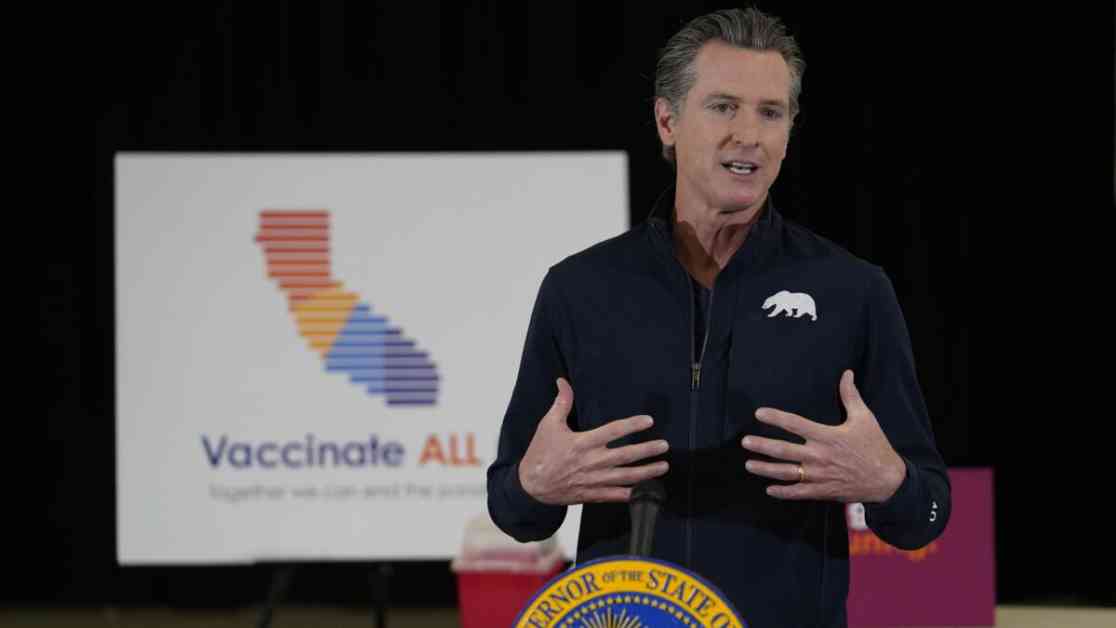California Governor Newsom’s Bold Move to Limit Ultra-Processed Foods Sparks National Debate
In a groundbreaking executive order issued by California Governor Gavin Newsom, a bold step was taken to limit access to ultra-processed foods, setting the stage for a potential clash with the incoming Trump administration. The directive, aimed at promoting healthier eating habits and combating the negative health impacts of processed foods, has already sparked a heated debate among policymakers, experts, and the general public.
Breaking Down the Executive Order
Governor Newsom’s executive order calls for state agencies to develop recommendations to limit the health risks associated with ultra-processed foods, signaling a significant shift in California’s approach to nutrition and health standards. The order also includes proposals to reduce the purchase of candy, soda, and other unhealthy foods made with synthetic dyes or additives by recipients of government food benefits. This move underscores Newsom’s commitment to creating a healthier future for all Californians and sets a precedent for other states to follow suit.
The Battle Against Ultra-Processed Foods
The term “ultra-processed foods” refers to foods that have been significantly altered from their natural state, such as packaged chips or soft drinks, and make up a large portion of the U.S. food supply. Governor Newsom’s order comes on the heels of a series of legislative actions aimed at improving nutrition in California, including the banning of certain food additives in popular products like cereal, soda, candy, and drinks. These measures are part of a broader effort to address the link between ultra-processed foods and serious health issues like cancer, obesity, and diabetes.
The Kennedy Factor
The timing of Governor Newsom’s executive order is particularly notable, as it coincides with the impending Senate confirmation hearing of Robert F. Kennedy Jr., President Trump’s nominee for Secretary of Health and Human Services. Kennedy, a vocal critic of ultra-processed foods and food additives, has promised to overhaul the country’s food system if confirmed. While his appointment has garnered support from some quarters, including anti-vaccine activists, others have raised concerns about his controversial stance on health issues and scientific evidence.
Expert Insights and Concerns
Dr. Peter Lurie, president and executive director of the Center for Science in the Public Interest, has expressed reservations about Kennedy’s appointment, citing his track record of promoting false health claims and fringe conspiracy theories. Lurie warns that Kennedy’s leadership at the Food and Drug Administration could have far-reaching consequences for the regulation of the U.S. food supply and the safety of consumer products. As the debate over ultra-processed foods and food additives continues to unfold, stakeholders from all sectors will be closely watching the developments in California and beyond.
In this era of heightened awareness about the impact of diet on public health, Governor Newsom’s bold move to limit ultra-processed foods is a timely and important step towards promoting healthier eating habits and combating the obesity epidemic. As the nation grapples with rising rates of chronic diseases linked to unhealthy diets, initiatives like this one have the potential to make a significant difference in the lives of millions of Americans. Let’s hope that other states follow California’s lead and prioritize the health and well-being of their residents by taking similar decisive action against the scourge of ultra-processed foods.
















